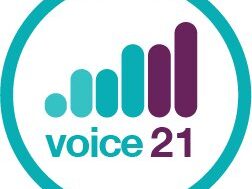Supporting students with Emotionally-Based School Avoidance
We know that our children and young people (CYP) who already have existing mental health issues will have found the experience of transitioning back into school post lockdown particularly stressful and increased levels of anxiety may be observed.
However, it is probably also the case that every child may have experienced higher levels of stress and anxiety at this time and that when returning to the school context they found additional emotional and psychological hurdles to overcome.
The need to provide support for increased levels of anxiety and managing the transition to a ‘new normal’ will be on-going – particularly when the new normal also includes the context of war in Ukraine (amongst others) and financial insecurity and unrest in the UK.
Never has there been a time when knowing how to manage your own well-being and how to support our children in doing this has been so vital.
This talk will cover:
• Defining emotionally based school avoidance – what does it look and feel like
• Practical approaches and techniques for supporting children with anxiety and school phobia
• How to recognise the warning signs
• How to enable readiness for learning by reducing heightened emotional states
• Top tips for supporting transition back to the classroom
• Developing individualised safety plans for CYP
• Developing your Sunday evening and Monday morning plans for managing the increased anxiety levels at these times
• Developing your own ability to ‘find your calm’ and share it with those children in your care.
Dr Tina Rae has 40 years’ experience working with children, adults, and families in clinical and educational contexts within local authorities and specialist services. She is currently working as a Consultant Educational and Child Psychologist in a range of SEMH and mainstream contexts and for fostering agencies as a Consultant Psychologist supporting foster carers, social workers and looked after children. She was an Academic and Professional tutor for the Doctorate in Educational and Child psychology (University of East London) from 2010-16. She is a registered member of the Health and Care Professions Council, a member of ENSEC (European Network for Social and Emotional Competence) and a former trustee of Nurture UK.
Tina is a member of the editorial board for the International Journal of Nurture in Education. She is also a member of the Advisory board for Fresh Start in Education and for The Association for Child and Adolescent mental health (ACAMH).
Tina is a prolific author and has over 100 publications to date. These reflect her ongoing passion for developing practical resources for schools which have an evidence base and enable practitioners to ethically deliver effective preventative mental health interventions in schools.
Dr Steve Murray MCCT, Lead Practitioner for Data and Research at Orchard School Bristol and Trust Leader in Education for Trust in Learning Academies (TiLA). Steve has a MSc and PhD in Climate Science and has taught geography in a number of secondary schools in North Bristol. He also has experience in middle and senior leadership, with both pastoral and pedagogical responsibility. Steve now also supports TiLA in linking educational research to classroom practice, in order to enhance teacher CPD and improve students’ academic progress. Follow Steve on Twitter @EduResearching.
You can access a copy of the presentation here:
Dr Tina Rae – Understanding and supporting those with Emotionally Based School Avoidance.pptx
You can also engage with this content ‘on the go’ through the EduResearching podcast https://anchor.fm/
Additional resources
The Forth Valley and West Lothian Improvement Collaborative (FVWL RIC) have a current focus on improving school attendance across the local authorities they represent. Their team have created an ‘Interactive Attendance Guide’ to support schools, early years settings and practitioners at all levels, in addressing attendance problems. They have kindly shared this guide as an additional resource that you may find useful – here is the link: FVWL RIC Attendance Guide — ThingLink


